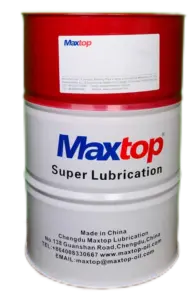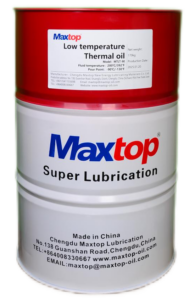Heat Transfer Fluid
A variety of types of heat transfer fluid
Heat transfer fluid, also known as heat transfer fluid (HTF), is a specialized liquid engineered to transfer thermal energy in industrial heating systems. Unlike water or steam, thermal oils operate at elevated temperatures (typically up to 400°C) without vaporizing, maintaining stable liquid-phase heat transfer. This characteristic makes them ideal for closed-loop systems requiring precise temperature control and uniform heat distribution. Modern thermal oils are formulated from highly refined mineral oils or synthetic compounds (such as alkylbenzenes or diphenyl oxides) to deliver superior thermal stability, oxidation resistance, and extended service life. Their applications span diverse industries including chemical processing, pharmaceutical manufacturing, food production, and renewable energy systems, where they enable efficient indirect heating while minimizing system corrosion and maintenance requirements.
Alkyl benzene heat transfer fluid (L-QB280)
 Excellent thermal stability and oxidation resistance for long-term performance.
Excellent thermal stability and oxidation resistance for long-term performance.- Superior anti-coking and self-cleaning properties prevent system fouling.
- Minimal acid value increase and carbon formation during operation.
- Extended 10+ year service life with energy-saving and eco-friendly benefits.
- Excellent low-temperature fluidity and heat transfer efficiency.
- Ready-to-use formula compatible with other brands to enhance performance.
Applications
Closed heat transfer oil heating system or open heat transfer oil heating system can be used: the maximum oil film temperature of 320℃, the maximum main body temperature of 300℃. The air contact temperature of the upper slot of the open system is less than 70 ° C.
Hydrogenated heat transfer fluid (L-QB300)
 The base oil with high saturation hydrocarbon, low sulfur phosphorus and no impurities was refined by high temperature and high pressure hydrocracking, and the MAXTOP thermal oil compound additive was added.
The base oil with high saturation hydrocarbon, low sulfur phosphorus and no impurities was refined by high temperature and high pressure hydrocracking, and the MAXTOP thermal oil compound additive was added.- Using a number of patented formula technology, through a number of self-developed ultra-long time both high temperature and oxidation of anti-coking test technology developed.
It has better thermal conductivity retention, system self-cleaning and long service life. - The heat transfer oil with anti-coking hydrogenation has better high temperature resistance, oxidation resistance and coking resistance, longer service life and lower operating cost than ordinary heat transfer oil with hydrogenation.
Applications
- Closed heat transfer oil heating system or open heat transfer oil heating system can be used: the maximum oil film temperature of 320℃, the maximum main body temperature of 300℃. The air contact temperature of the upper slot of the open system is less than 70 ° C.
Mineral heat transfer fluid (L-QB300)
 High thermal stability ensures reliable performance under prolonged high-temperature operation.
High thermal stability ensures reliable performance under prolonged high-temperature operation.- Superior oxidation resistance minimizes acid value and carbon buildup, reducing degradation.
- Excellent anti-coking properties prevent deposits and clogging in pipelines and boilers.
- Extended lifespan (8+ years) with proper use, eliminating frequent oil changes.
- No system flushing required when replacing oil, reducing downtime and costs.
- Low evaporation loss ensures stable system pressure and minimal top-up needs.
Applications
- Closed heat transfer oil heating system or open heat transfer oil heating system can be used: the maximum oil film temperature of 320℃, the maximum main body temperature of 300℃. The air contact temperature of the upper slot of the open system is less than 70 ° C.
Synthetic heat transfer fluid (L-QC320)
 Superior thermal stability – 20-30°C higher than hydrogenated, mineral, and alkylbenzene-based oils, with better heat transfer efficiency.
Superior thermal stability – 20-30°C higher than hydrogenated, mineral, and alkylbenzene-based oils, with better heat transfer efficiency.- Low degradation – Minimal acid value increase and carbon buildup during operation.
- Clean & efficient – No deposits, coking, or pipe clogging; stable energy consumption.
- Long-lasting & eco-friendly – Over 10 years lifespan, no boiler cleaning needed, reducing carbon footprint.
- Compatible & protective – Mixable with other oils to improve anti-coking; prevents rust and stabilizes pressure.
Applications
The use of closed heat conduction oil heating system: the highest oil film temperature 340-350℃, the highest main body temperature 320℃. If the user must use it in an open system, the temperature at which the upper slot contacts the air should be lower than 70 ° C.
Special electric heating heat conduction oil series products(MTEH)
 Higher flash point, less evaporation loss, more suitable for air contact open system use.
Higher flash point, less evaporation loss, more suitable for air contact open system use.- Better thermal stability, better thermal oxidation stability, better resistance to coking.
- Comprehensive protection of metal surface rust, small fill oil evaporation loss, less pressure in the boiler system is running stable.
- Can be mixed to join other brands of the same type of heat conduction oil use, and can significantly improve the heat conduction oil coking resistance level;
- Electric heating rods or electric heating surface is not easy to form the coking content, so as to realize the saving energy and reducing consumption, and greatly improve the safety level, put an end to the security risk of fire due to burn out electrical bar.
- Developed many electric heating heat conduction oil, the convenience of the user to select with special needs.
- The temperature of contact air is from 120 ° C to 250 ° C, and the main body heating temperature is from 300 ° C to 350 ° C.
Applications
Recommended for open thermal oil heating system, contact air temperature can be greater than 120℃. In particular, special electric heating systems that cannot isolate air: such as electric sandwich POTS, electromagnetic heaters, mold temperature machines, electric heating reactors, jacketed reactors that cannot be closed, laboratory open heating equipment, etc., the maximum oil film temperature is 320 ° C ~360 ° C, and the maximum main body temperature is 300 ° C ~350 ° C.
Low temperature heat transfer fluid series products(MTLT)
 Superior cold flow – Easy cold starts, low resistance, and smooth operation in freezing conditions.
Superior cold flow – Easy cold starts, low resistance, and smooth operation in freezing conditions.- Thermal stability – No sludge, oxidation, or pipe clogging at high temperatures.
- Self-cleaning ability – Prevents deposits, maintains efficiency, and avoids energy waste.
- Eco-friendly & durable – Fewer oil changes, less maintenance, and lower emissions.
- Metal protection & reliability – Low evaporation, stable pressure, and consistent viscosity.
Applications
MTLT series products are mainly used for heat conduction in low temperature working environment: the use of temperature range -100℃ to 240℃, closed use is better, if the open system use air contact interface temperature should be less than 60℃. The stability of the product is particularly outstanding under the process conditions of both high temperature and low temperature and oxidation.
Electric heating oil compound heat conduction oil(MTET)
 Superior thermal stability – Resists oxidation & coking, ensuring long-term high-temp performance.
Superior thermal stability – Resists oxidation & coking, ensuring long-term high-temp performance.- Self-cleaning & low degradation – Minimal sludge, stable acidity, and carbon buildup.
- Energy-efficient & non-toxic – High-purity hydrocarbons, eco-friendly, and low maintenance.
- Excellent cold flow – Smooth cold starts, ideal viscosity for rapid heat transfer.
- Compatible & upgradable – Mixes with other oils, boosts anti-coking efficiency.
Applications
Electric heating oil is mainly used in various types of electric heating oil heater, hand warmer and other home heating equipment. The maximum oil film temperature is 320℃, and the maximum main stream temperature is 300℃. The temperature of contact with the air is greater than 110 ° C, and the sealing cover should be covered when using.
Anti-coking heat transfer fluid (MTD300)
-
 Superior thermal performance – Outstanding stability prevents coking, maintains conductivity, ensures long service life at high temperatures.
Superior thermal performance – Outstanding stability prevents coking, maintains conductivity, ensures long service life at high temperatures. - Self-cleaning & maintenance-free – Eliminates deposits/clogs, negligible acid/carbon increase, over 10 years without system cleaning.
- Energy-saving solution – Excellent cold flow properties, ideal viscosity for efficient heat transfer, minimal oil replenishment.
- System protection – Prevents corrosion, maintains stable pressure, compatible with other brands to improve performance.
- Ready-to-use convenience – New installations require no pre-heating, simply gradual temperature increase for operation.
Applications
Closed heat transfer oil heating system or open heat transfer oil heating system can be used: the maximum oil film temperature of 320℃, the maximum main body temperature of 300℃. It is recommended that the air contact temperature of the upper slot in the open system be less than 100 ° C.
Alkyl benzene heat transfer fluid
Hydrogenated heat transfer fluid
Mineral heat transfer fluid
Synthetic heat transfer fluid
Special electric heating heat conduction oil series products
Low temperature heat transfer oil series products
Electric heating oil compound heat conduction oil(MTET)
Anti-coking heat transfer fluid (MTD300)
Brochures
English
Electric oil heat transfer fluid (MTET)
Low temperature thermal fluid(MTLT-65)
Low temperature thermal fluid(MTLT-75)
Low temperature thermal fluid(MTLT-90)
Low temperature thermal fluid(MTLT-105)
Low temperature thermal fluid(MTLT-115)
Special electric heating thermal fluid MTEH330
Special electric heating thermal fluid MTEH350
Special electric heating thermal fluid_MTEH300
Special electric heating thermal fluid_MTEH320
SDS
English
Anti-coking heat transfer fluid-SDS
Electric oil heat transfer fluid-SDS
Low temperature thermal fluid(MTLT-90)SDS
Low temperature thermal fluid(MTLT-105)SDS
Low temperature thermal fluid(MTLT-115)SDS
Low temperature thermal fluid(MTLT-65)SDS
Low temperature thermal fluid(MTLT-75)SDS
Special electric heating thermal fluid(MTEH350)SDS
Special electric heating thermal fluid(MTEH320)SDS
Special electric heating thermal fluid(MTEH330)SDS
Special electric heating thermal fluid(MTEH300)SDS
Alkylbenzene synthetic heat transfer fluid-SDS

